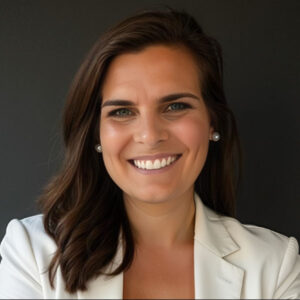Deducting Start-Up Expenses: An Open Or Shut Case

Deducting Start-Up Expenses
Starting a business typically takes more than a little know-how. More often than not, it requires cold, hard cash. However, there is some good news — you may qualify for a little help from Uncle Sam in the form of a tax deduction for some of your start- up costs.
The costs, which include amounts you pay to investigate the possibility of creating or purchasing a business and also expenditures you incur to get the business started, are called “capital expenses.” Although you generally cannot directly deduct capital expenses, you may elect to recover your investment in a business by depreciating or amortizing your costs over a number of years. The rules for deducting start-up expenses hinge on whether or not you actually open for business.
When You Open The Doors For Business
What are some legitimate start-up expenses?
The Internal Revenue Service cites surveys of potential markets; analyses of available facilities, labor, and supplies; travel and other necessary costs for securing distributors, supplies or customers; advertisements for the opening of the business; salaries and wages for employees who are being trained; and fees for consultants and professional services.
Under tax law, you may elect to amortize these start-up costs ratably over a period of 180 months, commencing with the month in which the business begins, if they meet the following tests: (1) they are costs that would be deductible if they were paid or incurred in connection with the expenses of an existing business in the same field; and (2) they are paid or incurred before you actually begin business operations.
Consider the following example. Anna decides to open a catering business. Her start-up expenses for establishing the business include travel, advertising, repairs, office supplies, and professional services — a total of $36,000. Anna gets her first catering job in July. All of her pre-July expenses are capital expenditures and, if an election is made, are deductible over 180 months at the rate of $200 per month ($36,000 divided by 180 months). That means, during the first year of business, Anna may deduct $1,200 for the first six months the business is opened (July through December). In the following year, Anna’s first full year of operation, she may deduct $2,400.
Under tax rules governing start-up expenses, you must make an election to amortize expenses by the due date of the return (including extensions) for the year in which active business begins. To qualify, you must include a description of the expenses, the amounts, the dates they were incurred, the month in which the business began, and the number of months in the amortization period. Sole proprietors, partners, and LLC members claim these deductions on IRS Form 4562, Depreciation and Amortization.
If you sell or otherwise dispose of your business before the end of the amortization period you have selected, any start-up costs for the business that you have not yet deducted may be deducted to the extent that they qualify as a business loss.
When Your Business Idea Doesn’t Work Out
What happens if, after incurring start-up expenses, you decide not to open a business?
If your attempt to go into business is not successful, you must divide your start-up costs into two categories. If you are not operating in corporate form, costs incurred for a general search or preliminary investigation prior to making a decision to acquire or to begin a specific business become personal expenses and are not deductible.
An example of a preliminary investigation expense might be an analysis of potential markets and the area’s labor supply.
Start-up expenses you incur after you’ve made a decision to acquire or to establish a specific business and prior to its actual operation may be deducted as a business loss in the year in which your attempt to go into business fails.
We hope you found this article about “Deducting Start-Up Expenses: An Open Or Shut Case” helpful. If you have questions or need expert tax or family office advice that’s refreshingly objective (we never sell investments), please contact us or visit our Family office page or website www.GROCO.com.
To receive our free newsletter, contact us here.
Subscribe our YouTube Channel for more updates.

Alan Olsen, is the Host of the American Dreams Show and the Managing Partner of GROCO.com. GROCO is a premier family office and tax advisory firm located in the San Francisco Bay area serving clients all over the world.
Alan L. Olsen, CPA, Wikipedia Bio

GROCO.com is a proud sponsor of The American Dreams Show.

The American Dreams show was the brainchild of Alan Olsen, CPA, MBA. It was originally created to fill a specific need; often inexperienced entrepreneurs lacked basic information about raising capital and how to successfully start a business.
Alan sincerely wanted to respond to the many requests from aspiring entrepreneurs asking for the information and introductions they needed. But he had to find a way to help in which his venture capital clients and friends would not mind.
The American Dreams show became the solution, first as a radio show and now with YouTube videos as well. Always respectful of interview guest’s time, he’s able to give access to individuals information and inspiration previously inaccessible to the first-time entrepreneurs who need it most.
They can listen to venture capitalists and successful business people explain first-hand, how they got to where they are, how to start a company, how to overcome challenges, how they see the future evolving, opportunities, work-life balance and so much more..
American Dreams discusses many topics from some of the world’s most successful individuals about their secrets to life’s success. Topics from guest have included:
Creating purpose in life / Building a foundation for their life / Solving problems / Finding fulfillment through philanthropy and service / Becoming self-reliant / Enhancing effective leadership / Balancing family and work…

MyPaths.com (Also sponsored by GROCO) provides free access to content and world-class entrepreneurs, influencers and thought leaders’ personal success stories. To help you find your path in life to true, sustainable success & happiness. It’s mission statement:
In an increasingly complex and difficult world, we hope to help you find your personal path in life and build a strong foundation by learning how others found success and happiness. True and sustainable success and happiness are different for each one of us but possible, often despite significant challenges.
Our mission at MyPaths.com is to provide resources and firsthand accounts of how others found their paths in life, so you can do the same.
Faith, Freight & “Slaying the Tomb”
How the Moscrips Drove From Freight Tech to Faith-Fueled Media When Scott Moscrip launched Truckstop.com from a spare bedroom in 1995, he didn’t just build a freight-matching marketplace—he rewired a blue-collar industry for the Internet age. Thirty years, five kids, and one mayoral term later, the Idaho technologist and his wife, Carmen, are chasing an…
From the Streets to Self-Reliance
How Joseph Grenny’s Other Side Village Is Rewriting the Homelessness Playbook A 2 a.m. Alarm and a Box of World-Class Doughnuts At two o’clock each morning in downtown Salt Lake City, former rough-sleepers slip into spotless aprons, fire up industrial mixers, and begin turning out pillowy brioche rings glazed with passion-fruit icing and drizzled…
Building a Legacy: A Fireside Chat with Martin Luther King III
In a thought-provoking fireside chat at our Legacy Builder’s Conference, Martin Luther King III shared profound insights on the concept of legacy, leadership, and the moral imperatives facing society today. Speaking with Alan Olsen, he reflected on his father’s enduring impact and his own efforts to carry forward that mission in today’s world. Defining His…
Turning Ordinary Lives into Living Legacies
“There was a measurable connection between how well they knew their family stories and how successful they were.” — Kasia Flanagan, founder of Everyday Legacies When historian‑turned‑biographer Kasia Flanagan examined the lives of mixed‑race German‑Samoan descendants for her PhD, she expected to chart migration patterns and cultural shifts. What she didn’t expect was the data point that changed her career:…




